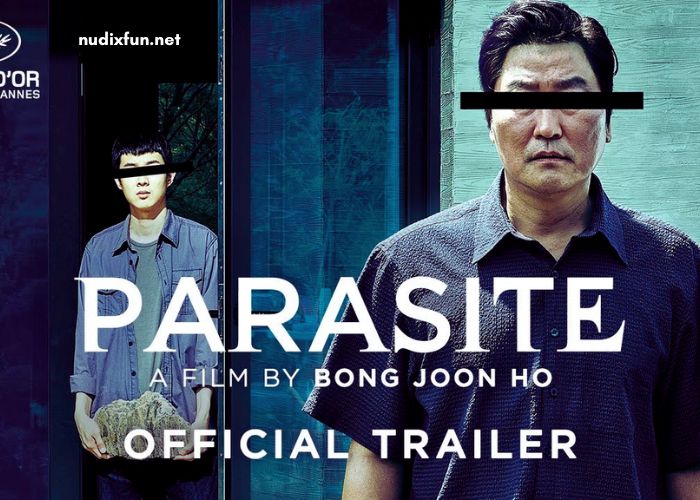| Title | Parasite |
|---|---|
| Genre | Thriller, Drama, Dark Comedy |
| Director | Bong Joon-ho |
| Language | Korean (with English subtitles) |
| Release Year | 2019 |
| Country | South Korea |
| Awards | 4 Oscars (including Best Picture) |
| Runtime | 132 minutes |
Parasite (2019), directed by Bong Joon-ho, is a globally acclaimed South Korean dark comedy thriller that shattered boundaries in storytelling and cinema. Known for its bold commentary on class inequality and human survival, Parasite became the first non-English film to win the Academy Award for Best Picture.
The movie’s gripping plot, layered symbolism, and masterful direction make it a must-watch for audiences seeking powerful social messages wrapped in suspenseful entertainment.
Story Description
The story follows the Kim family, who live in a semi-basement apartment, struggling to make ends meet. Their fortunes begin to change when Ki-woo, the son, lands a tutoring job for the wealthy Park family. Gradually, the entire Kim family infiltrates the Park household, each posing as unrelated professionals — a tutor, housekeeper, driver, and art therapist.
However, beneath this seemingly perfect plan lies a dangerous game of deception. As secrets unfold, the thin line separating luxury and poverty blurs, leading to a shocking climax that leaves audiences stunned.
Bong Joon-ho crafts a narrative that’s both entertaining and deeply thought-provoking, highlighting how desperation, greed, and ambition can turn humans into their own worst enemies.
Visuals & Cinematography
One of Parasite’s strongest features is its visual storytelling. The contrast between the cramped semi-basement of the Kim family and the spacious luxury of the Park mansion reflects social inequality perfectly. Cinematographer Hong Kyung-pyo uses lighting, angles, and space to mirror emotional tension from bright, airy scenes of wealth to dark, claustrophobic moments of despair.
Every frame contributes to the storytelling, with subtle details revealing the characters’ psychological states and hidden intentions.
Symbolism
Parasite masterfully blends social commentary with suspense. Its central theme revolves around class division, depicting how the poor and the rich coexist in the same city yet live in entirely different worlds.
Key themes include:
-
Social Inequality – The visible gap between the Kims’ poverty and the Parks’ privilege.
-
Ambition & Deception – How far individuals go to escape hardship.
-
Moral Corruption – The cost of pretending to be someone else for survival.
The recurring imagery of stairs and elevation symbolizes social mobility climbing up is hard, falling is inevitable.
Performances
The ensemble cast, including Song Kang-ho, Cho Yeo-jeong, and Park So-dam, delivers outstanding performances. Each character feels authentic, contributing to the film’s immersive realism. The chemistry between the actors heightens both the humor and the tragedy.
User Review
Audiences and critics worldwide hail Parasite as a modern masterpiece. Fans praise its unpredictable narrative, layered characters, and perfect balance of humor, tension, and heartbreak.
Viewers appreciate how it sparks conversation about wealth disparity, privilege, and the human condition themes that resonate across cultures.
Conclusion
Parasite isn’t just a movie it’s a social mirror, reflecting the harsh realities of modern class struggle. Bong Joon-ho combines sharp satire, stunning visuals, and gripping suspense to craft a story that’s as thrilling as it is meaningful.
Whether you’re a film enthusiast or casual viewer, Parasite is an unforgettable cinematic experience that challenges perceptions and lingers long after the credits roll.




